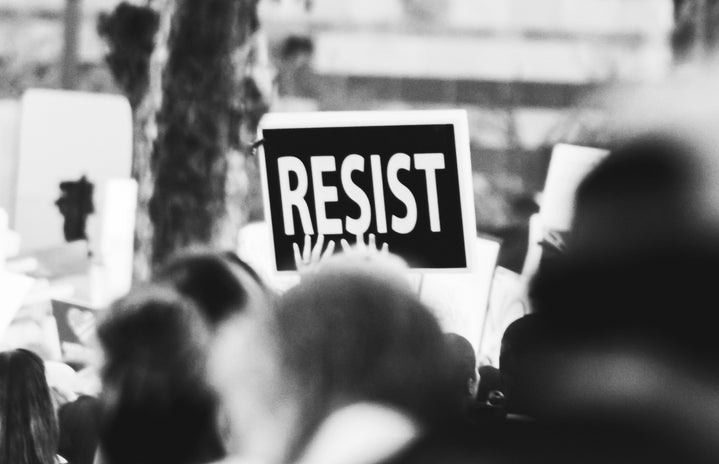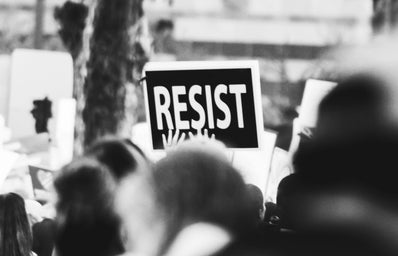UCL figures as the second-largest university in the U.K. and ranks 8th in the World according to QS (2022). Moreover, UCL boasts a history of disruptive thinking, having been the first university in England to admit students of any religion or social background as well as women. Therefore, UCL has frequently made national news.
However, in the past few years, UCL’s mentions in the news often had little to do with the abovementioned achievements. From UCL becoming the first university to formally opt out of Stonewall, to systematic racism and sexism complaints against Barlett, and UCU strikes; the news is less than uplifting.
The reaction of UCL students to these recent controversies are varied: from activist efforts to obliviousness. In the wake of the UCL’s Students’ Union’s latest Strike Action referendum, I set out to gain the perspective of those students who are campaigning for the rights of students and staff alike. So, earlier this week, I interviewed Daria Duda, UCL’s LGBTQ+ Students’ Network Campaigns Representative and student activist.
How would you describe yourself and your Students’ Union role?
I’m Daria, a third-year undergraduate anthropology student, a student organizer and activist. I’m the Campaigns Representative for the LGBTQ+ network and I’m also involved in the students’ initiatives around workers rights (security and UCU).
What is the difference between UCL’s Equity, Diversity & Inclusion (EDI) committee, the LGBTQ+ Equality Implementation Group (LEIG), and the Student’s Union LGBTQ+ Network?
The structure of the LGBTQ+ Network and the EDI – to which the LEIG directly reports– is pretty complex and they are two separate entities. The main difference is that the EDI committee is mainly UCL staff accompanied by a smaller group of students, whereas the Network is created by students for students. Although we do try to liaise with staff, we are our own organisation and we try to keep our independence.
Why did you choose to run for a Students’ Union LGBTQ+ Network role instead of the EDI or LEIG committees?
I got invested in the Liberation Network and the protection of trans rights at UCL last year when UCL chose not to re-join Stonewall despite the EDI committee’s recommendations. How the EDI committee’s opinion was bypassed is one of the reasons why I opted for the LGBTQ+ Network instead. Working in close contact with UCL and its staff requires an extra level of diplomacy and bureaucracy that I frankly do not feel like I possess. My strength, partially due to my background, resides in campaigning, being on the front of the picket line. Plus, last year, I was the Women’s Rep for the Network and I wanted to continue working with them.
You mentioned your background partially motivated your choice to join the Network. Could you elaborate on that?
I grew up in Poland where I felt children and teenagers are often treated in a patronising way when they try to express their opinion, especially about politics and activism. They are simply not taken seriously. This motivated me to find a space for my voice. When Rainbow Friday – a nation-wide initiative in support of LGBTQ+ schoolchildren– was banned in our high school, we decided to go ahead and participate anyway. Witnessing Greta Thunberg strikes was also very empowering. I worked with students from other High Schools to organise Fridays For Future protests.
You’re also involved in the staff and UCU strikes. How can students get informed and involved?
Breaching the gap between activists and the enormous body of UCL students is a big struggle. As student activists, we are in direct contact with people (like lecturers and academics) that are part of the UCL Trade Union and UCU. The issue lies in creating more student awareness on a public level since, as of now, we have to rely on our private social media platforms. Our goal is not a centralised student action but rather an organised system of communication and connection between the students and the UCU, Trade Unions, and staff.
A good step forward was the Strike Action referendum we had last year. It was the biggest in the history of the Students’ Union and the response was positive. Initially, the Sabbatical Officers chose to oppose the strikes, but we felt like students should also have their say, so we moved to democratise the vote. In this year’s referendum, both the percentage of people who voted in favour and the turnover were higher than last year, so I consider this a success.
Being involved in so many initiatives, do you ever feel overwhelmed about the amount of work or frustrated at those students that are not involved or aware of any of the issues?
I don’t see it as a burden, but it can be overwhelming, especially when the initiatives or organisations are quite small; it can feel like everything could fall apart if you stopped pulling your weight.
I would lie if I said I never get frustrated when I see people actively choosing not to get involved. However, I always try to think about the systematic changes that need to be made rather than focusing on the individual. There are many reasons why someone might not be as involved. For example, international students or Masters’ and exchange students, who are at UCL for just one year, might not feel as strongly towards U.K. social causes.
Finally, does your activism impact your academic career at all or are they two separate sides of your identity?
I’d say my academic career and my activist role complement each other. I’m quite lucky because I really enjoy my degree and it doesn’t consume all my energy so I can dedicate myself to other things. I’m currently writing my dissertation on the experience of trans, non-binary, and gender non-conforming students at UCL and I’m relying on my experience in the Network to do so. My dissertation supervisor is also involved in our departmental EDI, which is brilliant and helpful for my work.


